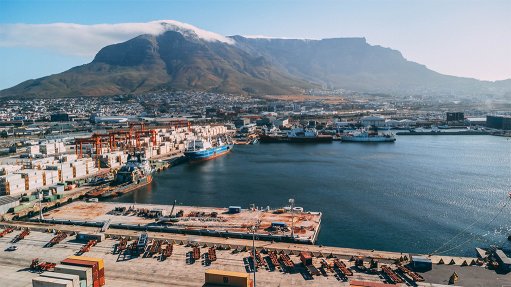
The Port of Cape Town
According to the newly published World Bank Container Port Performance Index, the Port of Cape Town has been identified as the worst performing port in the world.
It is joined in the bottom 16 of the 405-strong list of container ports by Durban, Ngqura and Port Elizabeth (Transnet still refers to the port by this name).
The City of Cape Town (CoCT) says this ranking “highlights the pressing need for substantial reforms and immediate action”.
“[We have] consistently advocated for the inclusion of private-sector investment and participation in port management and logistics,” says CoCT Economic Growth MMC James Vos.
“Transnet must keep the privatisation ball rolling on its April announcement to seek bids for the development and maintenance of a liquid bulk terminal.
“The inefficiencies at our port not only impede the flow of goods, but also significantly hamper our economic growth. The port is a crucial nexus for the products and services of the private sector, and its performance directly impacts our economy.”
The city’s Economic Growth Directorate, along with its strategic business partners in various sectors, says it is doing “everything possible to help companies improve their productivity and enhance access to markets”, notes Vos.
“However, despite these efforts, we face significant challenges as goods struggle to get through the port. We are constantly working on ways to increase demand and supply that benefits our economy, only to see these efforts hindered by the port's inefficiencies.”
The integration of private-sector expertise and resources is not just a potential solution – it is viewed as a necessary step, notes Vos.
“Private-sector involvement can bring fresh perspectives, innovative solutions and more efficient operational practices.
“According to research from the Western Cape Department of Economic Development and Tourism, private-sector participation at the Port of Cape Town could result in an additional R6-billion in exports, the creation of approximately 20 000 direct and indirect jobs, and over R1.6-billion in additional tax revenues within five years.”
Vos says the types of products affected by the port's performance are diverse and critical to the South Africa’s economy, such as agricultural goods, manufactured products and high-value exports, such as wine and seafood.
“The efficient movement of these goods is essential for maintaining Cape Town's competitive edge in global markets.
“I am calling for an urgent meeting with national government and key stakeholders to expedite the expanded process of private-sector participation in our port.”